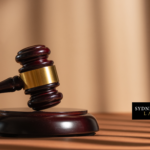Why don’t we have the right to privacy?

Recently, the controversial debate about privacy has gained momentum.
In Australia we have no right to privacy and the advancement of technology has meant that issues can arise when private individuals invade anothers privacy by use of technology like drones.
Such devices can evade the protection you would get if someone attempted to get the same information by standing on your property and filming.
If it is not legal to stand on your property to film, why should it be that you are unprotected if a hovering device in the air captures the same footage?
This ‘gap’ in protection is a large and increasing problem not only in Australia but in other countries where legislation does not adequately reflect the changes and advances in technology.
Celebrities and royalty have often been the victims of long-range cameras and found themselves powerless to stop intrusive invasions.
With no specific ‘right’ to privacy, people in the past generally have been protected by other areas of law that overlapped, for example, an action against trespass used to provide fairly sufficient protection against onlookers in the privacy of one’s own home.
But with the advancement of technology, privacy can be seriously violated in ways that are not contravening any law, and not just by a creepy neighbour.
There is growing concern that NSW police powers have become too far-reaching.
NSW tops the list of states in terms of surveillance device warrants – coming in at triple the rate of Queensland, South Australia and Western Australia combined!
The number of listening and tracking devices used by police in NSW has doubled since 2010, rising to 8824 last year, leading to concerns that the powers to use these devices were not fulfilling the purposes of the Act.
The Act was designed to target drug supply, murder and terrorism but often the crimes being targeted were not related to these categories.
Police have been found using their surveillance powers to conduct investigations in average, run of the mill cases.
Those investigating sex offences are the most likely to be seeking surveillance warrants.
About twenty years ago, a man was caught out attempting to bribe Commonwealth officials by the installation of listening devices in his home.
When the case worked its way to the High Court, the judges ruled that the use of listening devices was an invasion of a fundamental common law right.
A person in possession of premises had the power to exclude others, and that this could not be ‘implied away’ by statute.
Since then, this right has been explicitly eroded by newer legislation that expressly gives police the power to use surveillance devices if a judge of the Supreme Court is satisfied that the application meets the criteria set out in legislation.
According to the Surveillance Devices Act 2007, a law enforcement officer can apply for a warrant if:
- a relevant offence has been, or is about to be committed
- an investigation into that offence is being held or is likely to be held
- the use of a surveillance device is necessary for the purpose of an investigation into that offence to enable evidence relating to the offence or the identity of location of the offender to be obtained
An Ombudsman’s report recently found that it may even be standard practice for a tracking device to be allowed to go on recording even after the warrant has expired.
Concerns surrounding these warrants have led to calls to action.
The Council for Civil Liberties wants to get the laws allowing for the broad powers allowing for surveillance warrants to be changed and more stringent procedures for obtaining such warrants to be implemented.
Evidence obtained illegally can be thrown out of a courtroom, but here is the catch: the evidence CAN be included even if the police obtained it wrongfully in some circumstances: if the desirability of the evidence outweighs the undesirability of admitting evidence that was obtained illegally or improperly it will be allowed.
The federal government is also pushing for greater surveillance powers, holding the second inquiry into the matter in the last three years, with the push coming from two successive governments.
It has been suggested that telecommunications and internet providers could be forced to keep records of at least two years of their subscribers data which could be made available to law enforcement agencies.






